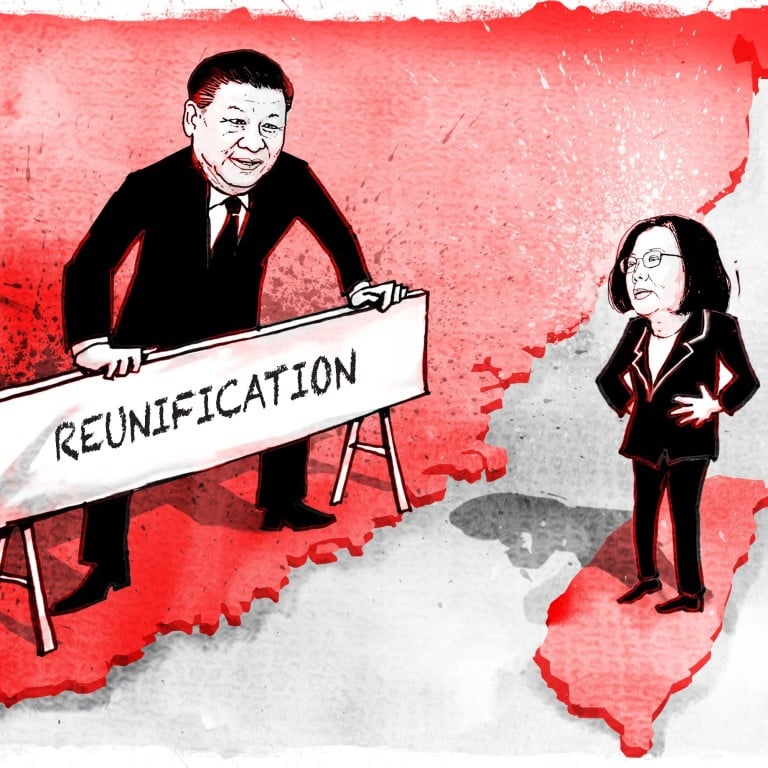
Taiwan issue, risk of conflict loom large for Beijing’s political elite
- Democratic island expected to be front of mind at ‘two sessions’ meetings as mainland ramps up its pressure campaign
- Rhetoric and military intimidation is set to continue, while across the strait public sentiment has further hardened against the Chinese government
China’s political elite will gather in Beijing this week for the year’s biggest legislative set piece facing a number of major political challenges, including the aftermath of the coronavirus and the ongoing rivalry with the United States. In this latest article in a series looking at the key items on the agenda, we examine relations across the Taiwan Strait.
It is hard to imagine that just over five years ago, the leaders of China and Taiwan shared a dinner together in Singapore.
There has been no official dialogue between the leaders across the Taiwan Strait since, as Beijing has insisted that talks cannot happen until the Tsai administration accepts the “1992 consensus”, or a political understanding that there is only one China with different interpretations on both sides as to what constitutes “China”. Beijing has vowed to bring Taiwan under its rule, by force if necessary, after Chiang Kai-shek’s defeated Nationalist force fled to the island following the Chinese civil war in 1949.
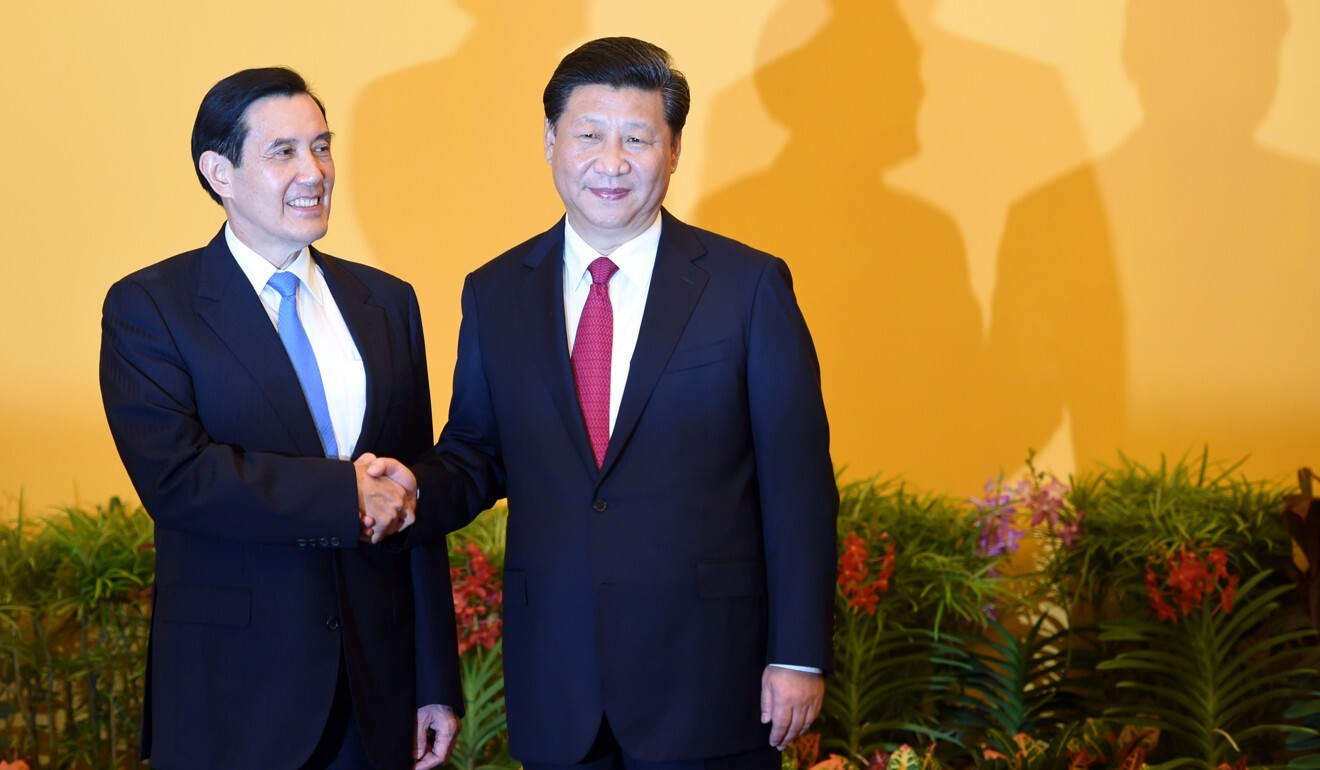
Xi, who changed constitutional term limits in 2018 to allow himself to remain in power beyond 2023, has said that the “reunification” of Taiwan with the mainland is key to his goal of “national rejuvenation”.
Five things you need to know about China’s biggest political gatherings
Observers say that the two sessions will discuss the growing risk of conflict over Taiwan, with Beijing ramping up its hawkish rhetoric and pressure campaign against the island as Tsai’s government deepens ties with the US, whose relations with China have sunk to the lowest level in decades. While official cross-strait dialogue is off the table, Beijing will keep up its pressure on Taiwan, coupled with grey-zone warfare tactics to wear down the island’s military defences, analysts say.
“The two sessions are more on the political side, and will balance the signals from the military side,” said Lin Ying-yu, from the Institute of Strategic and International Affairs at National Chung Cheng University in Taiwan. “China has divided these very clearly – the military side on Taiwan will more actively carry out exercises and engage in stronger rhetoric. But on the political side, they will signal they are willing to have exchanges with Taiwan, with a clear distinction made between ‘Taiwanese independence’ forces and cross-strait exchanges.”
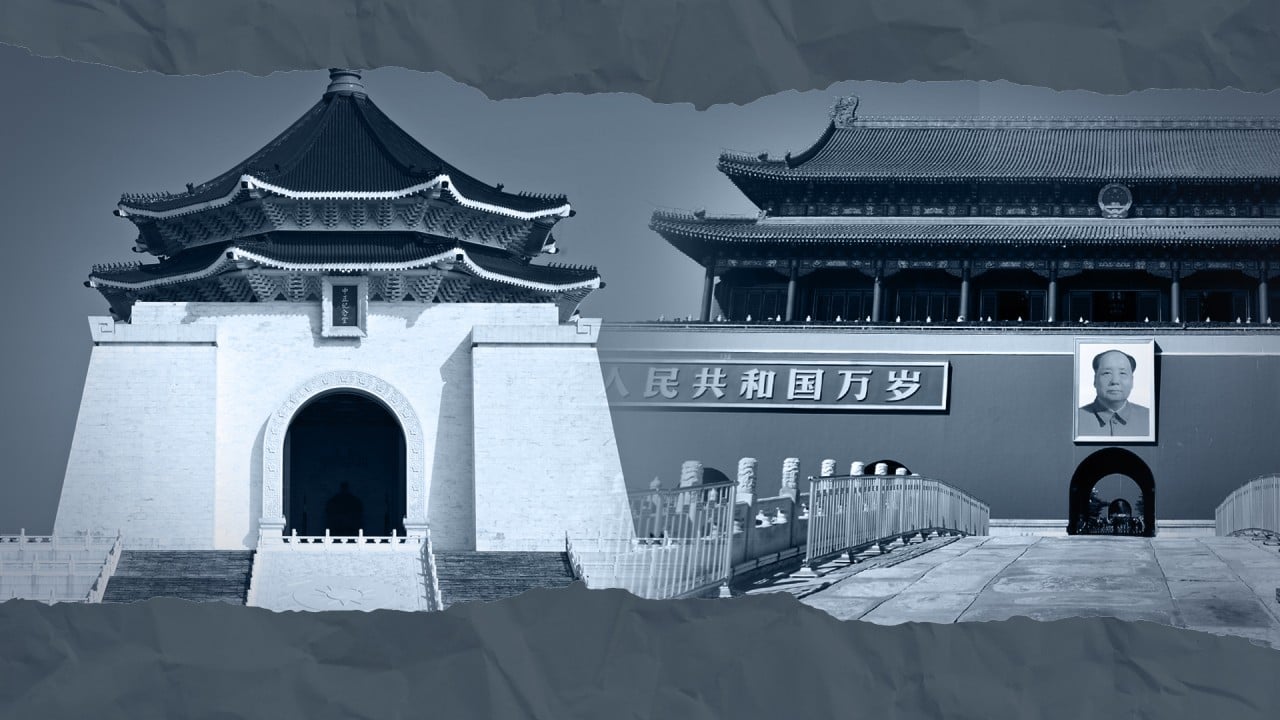
10:22
Why has the relationship between the Chinese mainland and Taiwan taken a turn for the worse?
But at the same time, in the first few weeks of 2021 alone, Chinese aircraft entered the southwestern section of Taiwan’s air defence identification zone more than 30 times in its intensifying military pressure campaign.
The risks of a conflict are growing, but I believe are not high. Domestic factors in China are driving China to adopt a tougher stance
Bonnie Glaser, director of the China Power Project at Washington-based think tank the Centre for Strategic and International Studies, said Wang’s remarks suggested “China has not abandoned using economic carrots, but the role of sticks in its toolbox is much greater, and growing”.
“I’m less concerned about the rhetoric than I am about actions,” she said, citing a simulated attack in late January by Chinese fighters and bombers against a US carrier. “The risks of a conflict are growing, but I believe are not high. Domestic factors in China are driving China to adopt a tougher stance.”
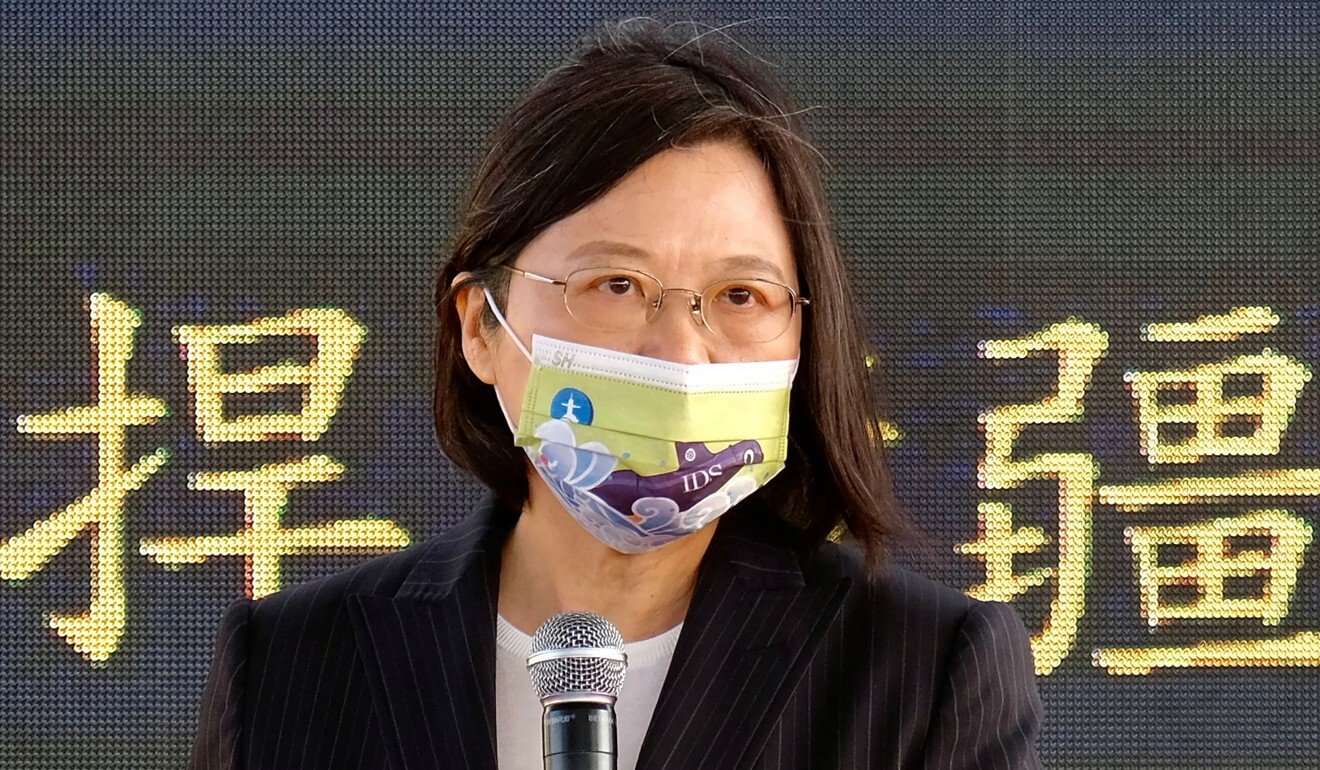
In Taiwan, public sentiment has further hardened against Beijing. Tsai, from the independence-leaning Democratic Progressive Party, won re-election in January last year in a landslide, an apparent endorsement of her administration’s tougher stance against China. She has offered to hold dialogue with Beijing “under the principles of parity and dignity”, but Beijing has insisted that a prerequisite for talks is the acceptance of the “1992 consensus”.
However, a survey by Taiwan’s Mainland Affairs Council in November found 74 per cent of the public rejected Beijing’s position on the “1992 consensus”, and more than 90 per cent opposed the Communist Party’s use of force to threaten Taiwan. Even the mainland-friendly opposition Kuomintang has held internal discussions on whether to continue supporting the “1992 consensus”.
If Taiwan continues to be so hostile … then it will be harder for Taiwanese scholars or individuals to come to the mainland
The souring of Taiwanese public opinion on Beijing comes despite a host of policies with incentives to lure Taiwanese people and businesses to the mainland. And even as mainland China has tried to engage in “cognitive warfare” in Taiwan to sway sentiment in Beijing’s favour, the effects have been limited against strong anti-Beijing sentiments, according to Taiwanese think tank the Institute for National Defence and Security Research.
“It is true that right now, cross-strait exchanges are in a very difficult stage because of the pandemic,” Li Zhengguang, deputy director of the Institute of Taiwan Studies at Beijing Union University, said. “And if Taiwan continues to be so hostile towards the mainland, then it will be harder for Taiwanese scholars or individuals to come to the mainland. If they are willing to ease tensions, on the mainland side, the door is wide open.”
China 1949: why did the Communists win?
“I think the frequency and the force with which the US plays the Taiwan card will decrease, but this does not impact the US’ political support to Taiwan’s authorities, and the moral support for Taiwan’s military,” he said. “If it is just rhetoric, economic, military or political support, it will not cause intense turmoil in the Taiwan Strait.”
“Peaceful reunification is not carried out solely through mild negotiations and by admonishments with well-meaning words,” he wrote on Weibo. “If the island’s political forces not only reject peaceful reunification but overtly and secretly promote Taiwanese independence, then the mainland side will use greater and greater military pressure – a necessary part of ‘peaceful reunification’.”
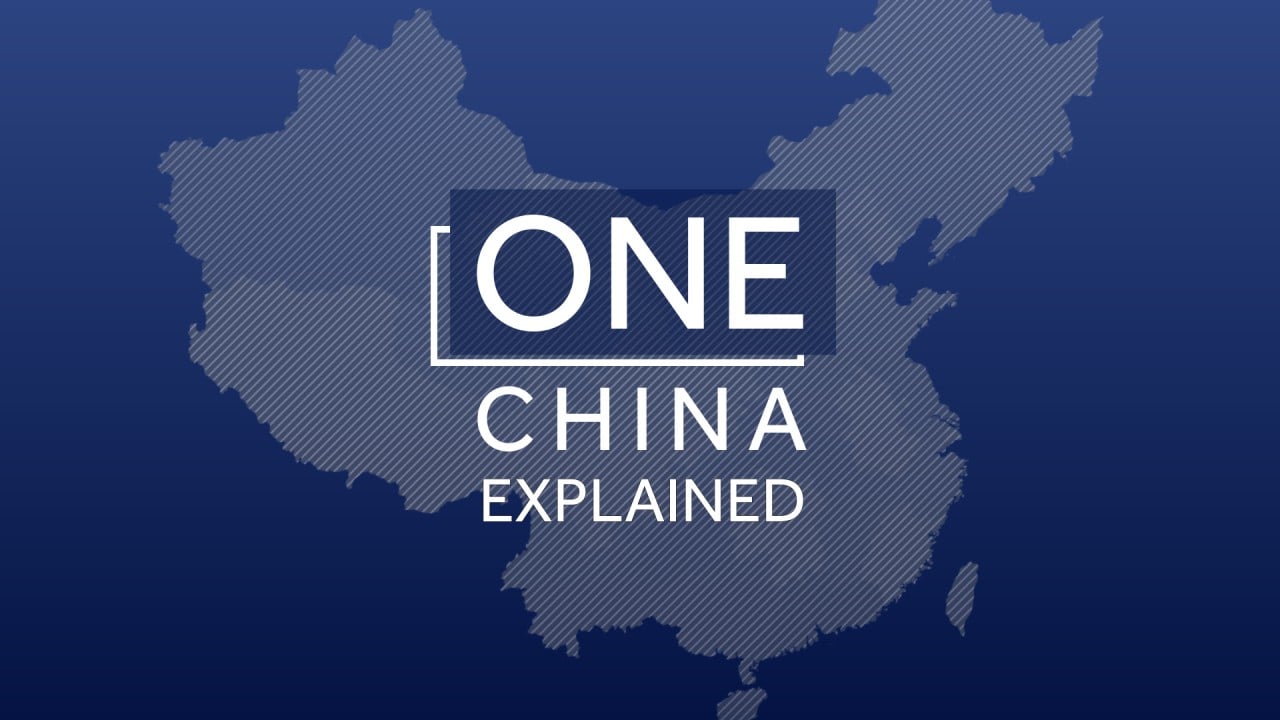
02:17
‘One China’ explained
This sentiment was echoed by Beijing-based pundit Sima Nan, whose real name is Yu Li, who in January posted on his Weibo social media account about a “cold” version of “forced reunification”, or essentially “putting a gun to their head” to force “peaceful reunification”. The assessment was that negotiating with Taiwan for unification would be futile and an actual invasion would be too costly, he said.
“As for Taiwan’s cross-strait policy, it all depends on the direction of the relations across the Taiwan Strait,” he said. “If the mainland continues its military exercises and tougher attitudes, then Taiwan will adopt this defensive mentality, and naturally this will elevate the unfriendly stance on both sides.”

